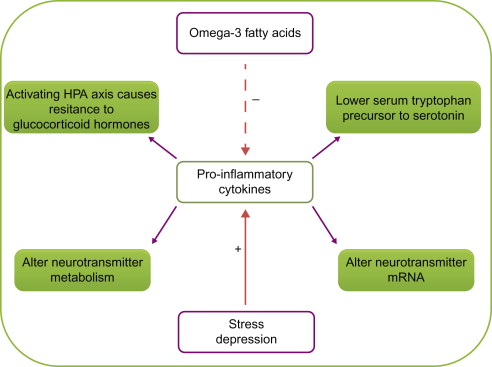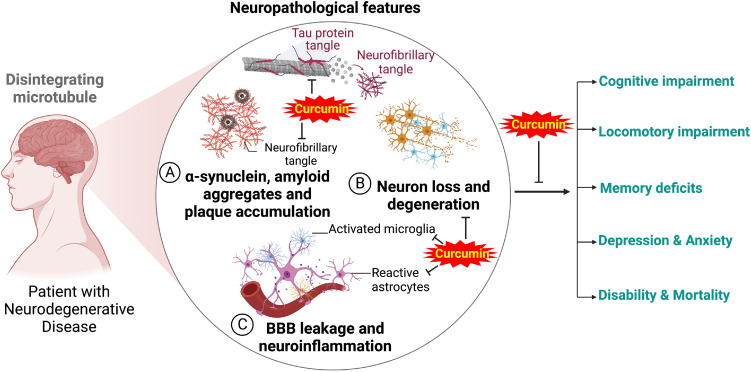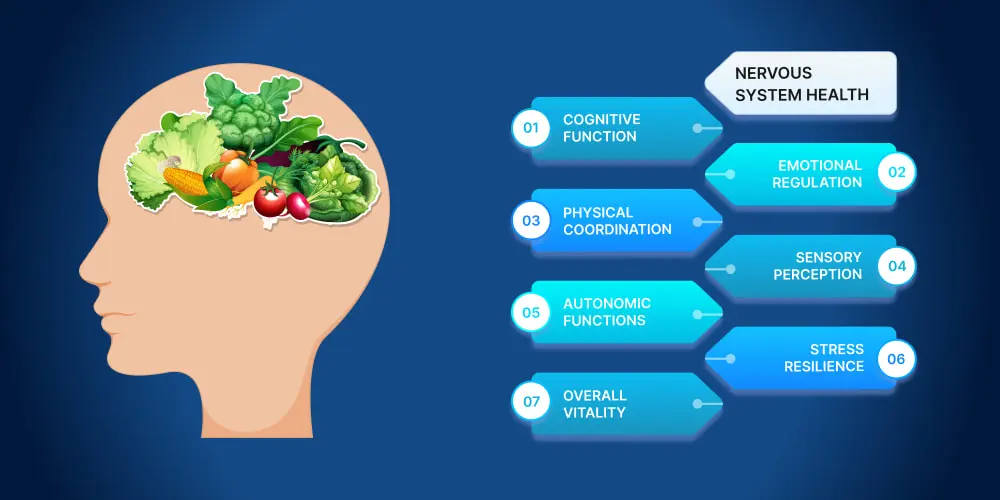Nutrition Dynamics Nerve Treatment highlights the role of key nutrients like B vitamins and omega-3 fatty acids in promoting nerve health and regeneration.
This article delves into the concept of Nutrition Dynamics Nerve Treatment, exploring its benefits, key nutrients, and practical dietary tips to support nerve health.
What is Nutrition Dynamics?

Nutrition Dynamics refers to the study of how different nutrients interact within the body to promote optimal health. It emphasizes the role of balanced nutrition in preventing diseases, enhancing recovery, and supporting overall bodily functions. When applied to nerve treatment, Nutrition Dynamics focuses on how specific nutrients can support nerve regeneration, reduce inflammation, and improve nerve function.
The interplay of nutrients in the body is complex, and each nutrient contributes uniquely to the overall picture of health. For example, certain vitamins can enhance the absorption and effectiveness of others, creating a synergistic effect that amplifies their benefits. Understanding these interactions can help individuals make informed dietary choices that support nerve health.
The Importance of Nerve Health:
Nerve health is crucial for the proper functioning of the nervous system, which controls everything from movement to sensory perception.The nervous system consists of two primary components: the central nervous system (CNS) and the peripheral nervous system (PNS).The CNS includes the brain and spinal cord, while the PNS encompasses all other nerves throughout the body.
Nerve damage can result from various factors, including diabetes, traumatic injuries, nutritional deficiencies, and autoimmune diseases. Conditions such as diabetic neuropathy, carpal tunnel syndrome, and multiple sclerosis can significantly impact the quality of life, leading to symptoms such as:
- Tingling or numbness
- Burning sensations
- Muscle weakness
- Discomfort
Addressing these issues through effective nutrition can enhance nerve health and improve the quality of life for those affected.
Key Nutrients for Nerve Treatment:
Certain nutrients play a vital role in maintaining and restoring nerve health. Incorporating these nutrients into your diet can significantly impact nerve regeneration and function. Here are some essential nutrients to consider:
Also Read: Researched Nutritionals AnxiaEase – Natural Support for Calm and Mental Clarity!
Vitamins B:
B vitamins, especially B1 (thiamine), B6 (pyridoxine), and B12 (cobalamin), are critical for nerve function. They help in the production of neurotransmitters, which are essential for communication between nerves. Foods rich in B vitamins include:
- Thiamine (B1): Thiamine is essential for converting carbohydrates into energy and plays a crucial role in nerve conduction. Deficiency can lead to nerve damage, especially in individuals with diabetes.
- Pyridoxine (B6): B6 is involved in the synthesis of neurotransmitters, including serotonin and dopamine, which affect mood and nerve function. It also helps to reduce homocysteine levels, an amino acid that can be harmful in high concentrations.
- Cobalamin (B12): Vitamin B12 is vital for maintaining the myelin sheath, a protective layer around nerves. A deficiency can lead to neuropathy and cognitive impairments.
Omega-3 Fatty Acids:

Omega-3 fatty acids are known for their anti-inflammatory properties, which can help reduce nerve inflammation and promote healing. They also play a role in nerve cell membrane integrity. Sources of omega-3 fatty acids include:
- Fatty fish (salmon, mackerel, sardines)
- Flaxseeds
- Chia seeds
- Walnuts
Agents that neutralize harmful free radicals:
Antioxidants help protect nerves from oxidative stress, which can lead to nerve damage. Vitamins C and E, along with compounds found in fruits and vegetables, can support nerve health. Foods high in antioxidants include:
- Vitamin C: This vitamin aids in collagen formation and is vital for the health of blood vessels, which nourish nerves.
- Vitamin E: Known for its role in protecting cell membranes, vitamin E can help reduce the risk of nerve damage.
Magnesium:
Magnesium is essential for nerve function and helps regulate nerve signaling. It acts as a natural calcium blocker, helping to stabilize nerve cells and prevent excessive excitation.Low levels of magnesium can lead to increased nerve excitability and pain. Research has shown that magnesium can help alleviate symptoms of neuropathic pain.
Food Sources: Dark leafy greens (spinach, kale), nuts and seeds (pumpkin seeds, almonds), whole grains, and legumes (beans, lentils).
Also Read: Sam’s Salad Kit Southwest Chopped Salad Nutrition Facts – An In-Depth Look!
Alpha-Lipoic Acid
Alpha-lipoic acid is an antioxidant that has been shown to improve nerve function and reduce symptoms of diabetic neuropathy. It can be found in foods such as:
- Spinach
- Broccoli
- Potatoes
- Organ meats
Curcumin

Curcumin, the key active compound found in turmeric, possesses potent anti-inflammatory and antioxidant properties that contribute significantly to its health benefits.It has been studied for its potential to protect against neurodegenerative diseases and improve nerve repair.
Food Sources: Turmeric root, which can be used in cooking or taken as a supplement.
Coenzyme Q10:
Coenzyme Q10 (CoQ10) is an antioxidant that plays a crucial role in energy production within cells. It has been shown to support nerve health and reduce oxidative stress, particularly in conditions like diabetic neuropathy.
Food Sources: Fatty fish, meat, whole grains, and leafy greens.
Practical Dietary Tips for Nerve Health:

Incorporating nerve-friendly nutrients into your diet can be straightforward. Here are some practical tips:
Prioritize Whole Foods:
Focus on whole, unprocessed foods rich in nutrients. This includes fruits, vegetables, whole grains, lean proteins, and healthy fats. Avoid highly processed foods, which often lack essential nutrients.
Stay Hydrated:
Adequate hydration is vital for nerve function. Aim to drink plenty of water throughout the day. Herbal teas and broths can also contribute to your hydration needs.
Also Read: Smarter Nutrition Curcumin Softgels – A Complete Guide!
Consider Supplements Wisely:
If you struggle to meet your nutritional needs through diet alone, consider supplements. Consult a healthcare professional before starting any new supplements to ensure they are appropriate for your individual needs.
Maintain a Healthy Lifestyle:

In addition to a nutritious diet, other lifestyle factors can significantly affect nerve health. Regular physical activity, adequate sleep, stress management, and avoiding smoking and excessive alcohol consumption can all contribute to better nerve function.
The Science Behind Nutrition and Nerve Health
Research continues to explore the complex relationship between nutrition and nerve health. Several studies have demonstrated that specific dietary patterns, such as the Mediterranean diet, are associated with a reduced risk of neurodegenerative diseases and improved nerve function. This diet emphasizes whole foods, healthy fats, and antioxidant-rich fruits and vegetables.
Additionally, clinical studies have shown that individuals with diabetic neuropathy who supplemented with B vitamins, alpha-lipoic acid, and omega-3 fatty acids experienced significant improvements in symptoms and nerve function.
FAQ’s
1. What is Nutrition Dynamics?
Nutrition Dynamics is the study of how nutrients interact to promote optimal health, emphasizing the role of balanced nutrition in preventing diseases and supporting bodily functions, particularly in nerve health.
2. Why is nerve health important?
Nerve health is crucial for the proper functioning of the nervous system, affecting movement, sensory perception, and overall quality of life. Nerve damage can lead to symptoms such as pain, weakness, and numbness.
3. Which nutrients are vital for nerve health?
Key nutrients for nerve health include B vitamins (B1, B6, B12), omega-3 fatty acids, antioxidants (vitamins C and E), magnesium, alpha-lipoic acid, curcumin, and Coenzyme Q10.
4. How can I improve my nerve health through diet?
To improve nerve health, prioritize whole foods rich in essential nutrients, stay hydrated, consider supplements if needed, and maintain a healthy lifestyle with regular exercise and adequate sleep.
5. Are there specific dietary patterns that support nerve health?
Yes, dietary patterns such as the Mediterranean diet, which emphasizes whole foods, healthy fats, and antioxidant-rich fruits and vegetables, are associated with improved nerve function and reduced risk of neurodegenerative diseases.
Conclusion
In conclusion, Nutrition Dynamics Nerve Treatment underscores the vital role of specific nutrients in promoting nerve health and function. By incorporating key vitamins, omega-3 fatty acids, and antioxidants into your diet, you can enhance nerve regeneration and reduce inflammation. Prioritizing a balanced diet along with a healthy lifestyle can significantly improve the quality of life for those affected by nerve-related issues.